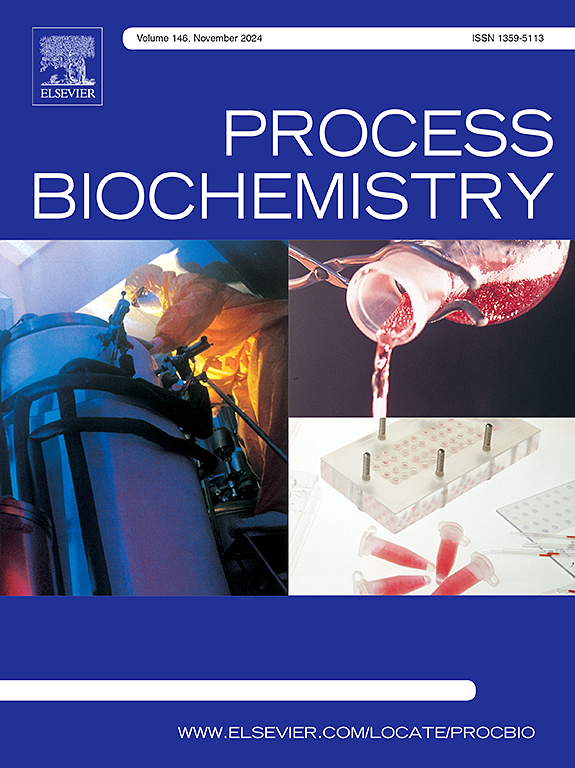A comprehensive review on integration of cellular metabolic engineering and cell-free systems for microbial platforms
IF 3.7
3区 生物学
Q2 BIOCHEMISTRY & MOLECULAR BIOLOGY
引用次数: 0
Abstract
In response to the demand for environment friendly synthesis of chemical feedstocks, two disciplines have emerged: cellular metabolic engineering (CME) and cell-free metabolic engineering (CFME). Cell free systems largely replicate cellular pathways in vitro to bypass the need of live cells to achieve greater control and process simplicity. However, not all cellular biochemical aspects can be replicated in vitro, as some are not hardwired but crucial modulators of biochemical processes. These include metabolic states defined by ensemble of small molecules that influence proteostasis, catalytic activity of enzymes, and redox power, influencing cellular anabolic and catabolic decisions. Despite the advancement of molecular biology techniques engineering such control systems remains largely a challenge for cellular metabolic engineering. This review thoroughly examines these limitations in both fields and explores the potential for implementing non-hardwired control systems in cell-free metabolic engineering, either independently or in combination with cellular metabolic engineering. Further, the integration of chemistry and machine learning models is considered, with a focus on how their combined strengths can be leveraged to develop novel synthetic schemes.
细胞代谢工程与微生物平台无细胞系统的综合研究进展
为了满足化工原料环境友好合成的需求,出现了两个学科:细胞代谢工程(CME)和无细胞代谢工程(CFME)。无细胞系统在很大程度上复制体外细胞途径,以绕过活细胞的需要,实现更好的控制和过程简单。然而,并不是所有的细胞生化方面都可以在体外复制,因为有些不是硬连线的,但却是生化过程的关键调节剂。这些代谢状态包括由影响蛋白质平衡的小分子集合定义的代谢状态,酶的催化活性,以及影响细胞合成代谢和分解代谢决定的氧化还原能力。尽管分子生物学技术的进步,这种控制系统在很大程度上仍然是细胞代谢工程的一个挑战。这篇综述彻底检查了这两个领域的局限性,并探讨了在无细胞代谢工程中实现非硬连线控制系统的潜力,无论是独立的还是与细胞代谢工程结合的。此外,还考虑了化学和机器学习模型的集成,重点是如何利用它们的综合优势来开发新的合成方案。
本文章由计算机程序翻译,如有差异,请以英文原文为准。
求助全文
约1分钟内获得全文
求助全文
来源期刊

Process Biochemistry
生物-工程:化工
CiteScore
8.30
自引率
4.50%
发文量
374
审稿时长
53 days
期刊介绍:
Process Biochemistry is an application-orientated research journal devoted to reporting advances with originality and novelty, in the science and technology of the processes involving bioactive molecules and living organisms. These processes concern the production of useful metabolites or materials, or the removal of toxic compounds using tools and methods of current biology and engineering. Its main areas of interest include novel bioprocesses and enabling technologies (such as nanobiotechnology, tissue engineering, directed evolution, metabolic engineering, systems biology, and synthetic biology) applicable in food (nutraceutical), healthcare (medical, pharmaceutical, cosmetic), energy (biofuels), environmental, and biorefinery industries and their underlying biological and engineering principles.
 求助内容:
求助内容: 应助结果提醒方式:
应助结果提醒方式:


